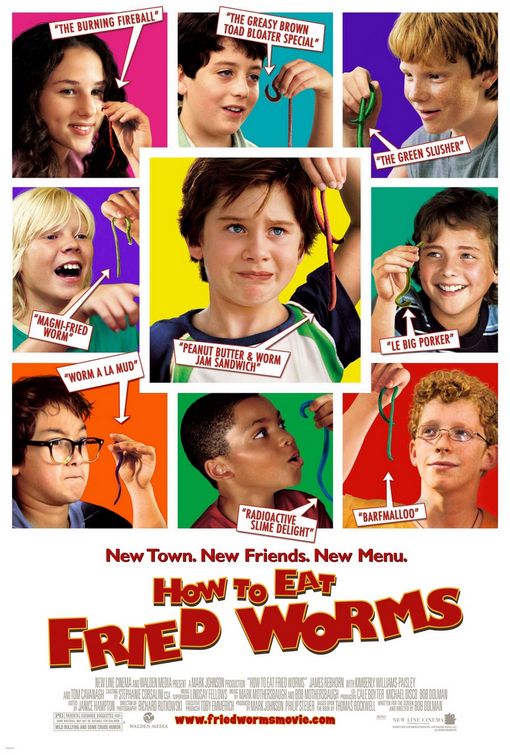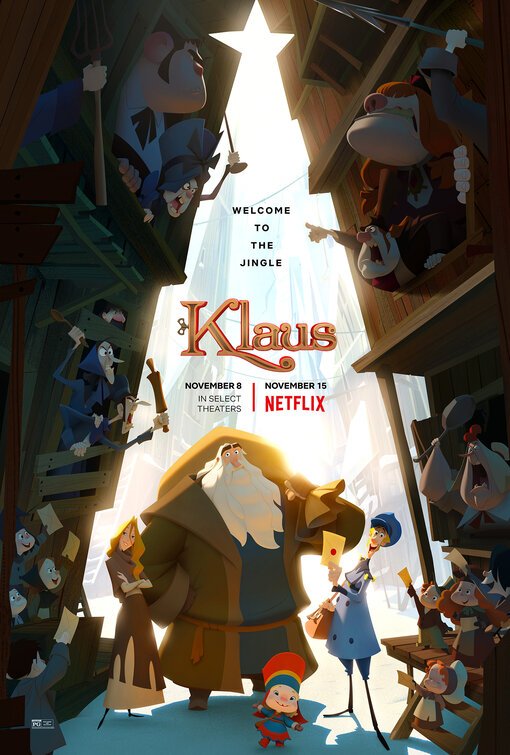“Witty and Charming”

| None | Light | Moderate | Heavy | |
|---|---|---|---|---|
| Language | ||||
| Violence | ||||
| Sex | ||||
| Nudity |
What You Need To Know:
KLAUS is a witty, charming movie with heartwarming moments. It cleverly shows how one selfless act can put into motion countless other selfless acts. KLAUS has a strong moral worldview with depictions of thankfulness, kindness, selflessness, and family. There’s some unnecessary cartoon violence and one scene with scary dogs that are after Jesper, but they never get close to harming him. KLAUS has some implied magic in a couple scenes and doesn’t mention Christmas, Jesus or the original St. Nicholas, but that doesn’t take away from the movie’s overall positive messages and warmth.
Content:
Strong moral worldview with depictions of honoring your parents even when you don’t want to honor them, hatred is rebuked, being selfless is promoted, kindness and peace between people is promoted and depicted, the importance of education for children is extolled, and some magical elements such as it is implied that a magical wind is one man’s late wife, and the man seems to be able to know everything in the town
No obscenities or profanities but one use of idiot and brat
Group of kids do various mean things to an old man but they stop when they find out Klaus is always watching them, a child throws snowball at someone, two groups of people are battling each other two times in movie though no one is harmed, one scene with scary dogs trying to attack the postman, two people fight over another person, and scenes involving an axe, but no one is harmed
No sex
No nudity
No alcohol use
No smoking or drugs; and,
Character bribes children to write letters to help him meet his goal, character uses presents as an incentive to write letters, bad role models in Mrs. Krum and Mr. Ellingboe wanting the town to stay divided, there’s a tradition of hatred in the town, and a character tries to cheat and bribe his way through postman school but he’s discovered, punished and sees the error of his ways .
More Detail:
As the movie opens, Jesper, the son of a postmaster, is in training to become a postman himself. However, when his father learns he’s cheating and bribing his way through his training, he decides it’s time to force his son to grow up. He sends Jesper to the community of Smeerensburg, a faraway town on an island that can only be reached by boat.
When Jesper arrives, he expects to find a lively town whose citizens are excited to welcome him. Instead, he finds an old, rundown place. When he accidentally rings the town’s battle bell, citizens run from opposite sides of the town ready to fight. He learns there’s a longstanding tradition of hatred between the Ellingboes and the Krums that’s divided the town. The townspeople learn Jesper is a postman and are outraged he has been sent there.
On his first day on the job, Jesper finds a drawing on the ground that was dropped by a child. Instead of giving it back, he convinces the child to mail it. He takes the letter with him out to the woods to visit one last place to check for mail. He arrives at an empty house filled with toys, but eventually runs into a big man named Klaus. Jesper assumes the man is a bad guy and runs away. As Jesper runs away, he drops the bag holding the letter. The letter finds Klaus who takes a look.
Cut to Jesper. He’s packing his things to head home and give up on his job. On his way out, he runs into Klaus, who’s carrying a wrapped toy. Klaus makes Jesper deliver it to the house where the child who mailed the drawing lives.
When the children of the town find out about the toy the child received after writing a letter, they all want to start writing letters. This ignites an idea in Jesper for a partnership between him and Klaus. Jesper encourages the children to keep writing letters asking for toys to help him meet his quota for mail deliveries, and Klaus will provide the toys. The two of them will deliver the toys to the children who write every night.
The letters and toys start to have an effect on the townspeople, who gradually start to put their differences aside and interact with one another. Will Jesper and Klaus change the longstanding tradition of hatred in the town, or will Jesper eventually be run out of town and fail to complete his job?
KLAUS is a witty animated movie with a twist on how Santa Claus came to be the legendary person we all know today. The movie has some heartwarming moments as the audience watches how one selfless act can put into motion countless other selfless acts.
KLAUS has a strong moral worldview with depictions of thankfulness, kindness, selflessness, and family. The movie also supports the importance of education for children. There is some unnecessary cartoon violence and one scene with scary dogs that are after Jesper, but they never get close to harming him. KLAUS has some implied magic in a few scenes and doesn’t mention Christmas, Jesus or the original St. Nicholas, but that doesn’t take away from the movie’s overall positive messages and warmth.


 - Content:
- Content: 

